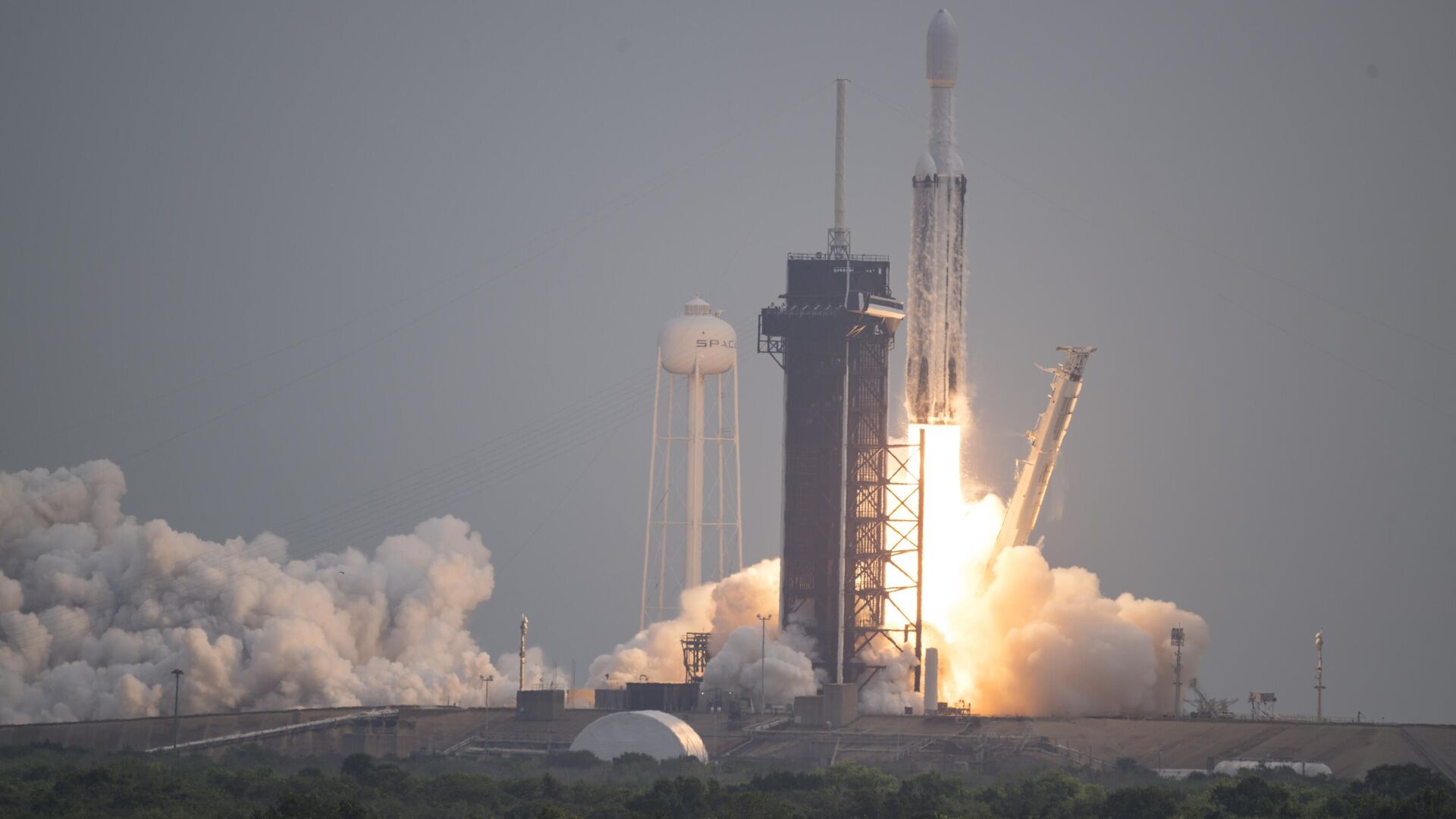https://sputnikglobe.com/20240408/s-korea-successfully-launches-2nd-indigenous-spy-satellite-into-orbit---reports-1117806722.html
S. Korea Launches 2nd Indigenous Spy Satellite Into Orbit - Reports
S. Korea Launches 2nd Indigenous Spy Satellite Into Orbit - Reports
Sputnik International
South Korea has successfully launched its second domestically-produced reconnaissance satellite on board SpaceX's Falcon 9 rocket from Kennedy Space Center in the US state of Florida, media reported on Monday, citing the South Korean Defense Ministry.
2024-04-08T08:44+0000
2024-04-08T08:44+0000
2024-04-08T12:02+0000
military
south korea
north korea
kennedy space center
spacex
satellite
https://cdn1.img.sputnikglobe.com/img/07e7/0a/0e/1114188342_0:160:3072:1888_1920x0_80_0_0_0d3c232a4c533cce22e04e6bfcadc9fb.jpg
The rocket lifted off at 8:17 a.m. Seoul time (23:17 Sunday GMT) and sent the intelligence satellite into orbit approximately 45 minutes after the launch, South Korean news agency reported. The satellite established contact with an unspecified foreign ground station at 10:57 a.m., the report said. This is Seoul's second military satellite launch under South Korea's plan to put five reconnaissance satellites into orbit by 2025 to monitor North Korea's activities, the report also said. The move comes as North Korea is allegedly boosting efforts to develop space reconnaissance capabilities, which could potentially enhance its "precision strike capability" against major targets in South Korea and the United States, the report added. On November 21, 2023, Pyongyang successfully carried out the launch of its Malligyong-1 reconnaissance satellite into orbit aboard the Chollima-1 carrier rocket after two failed launch attempts in May and August. Following the launch, South Korea partially suspended the 2018 inter-Korean military agreement aimed at reducing tensions on the Korean Peninsula. In response, Pyongyang announced its decision to restore all military measures suspended under the 2018 inter-Korean military accord.
https://sputnikglobe.com/20240229/us-refuses-to-discuss-nuclear-arms-in-outer-space-despite-russias-dialogue-efforts-1117061051.html
south korea
north korea
Sputnik International
feedback@sputniknews.com
+74956456601
MIA „Rossiya Segodnya“
2024
Sputnik International
feedback@sputniknews.com
+74956456601
MIA „Rossiya Segodnya“
News
en_EN
Sputnik International
feedback@sputniknews.com
+74956456601
MIA „Rossiya Segodnya“
Sputnik International
feedback@sputniknews.com
+74956456601
MIA „Rossiya Segodnya“
south korea, south korea space, south korea falcon, south korea sattellite
south korea, south korea space, south korea falcon, south korea sattellite
S. Korea Launches 2nd Indigenous Spy Satellite Into Orbit - Reports
08:44 GMT 08.04.2024 (Updated: 12:02 GMT 08.04.2024) MOSCOW (Sputnik) - South Korea has successfully launched its second domestically-produced reconnaissance satellite on board SpaceX's Falcon 9 rocket from Kennedy Space Center in the US state of Florida, media reported on Monday, citing the South Korean Defense Ministry.
The rocket lifted off at 8:17 a.m. Seoul time (23:17 Sunday GMT) and sent the intelligence satellite into orbit approximately 45 minutes after the launch, South Korean news agency reported.
The satellite established contact with an unspecified foreign ground station at 10:57 a.m., the report said.

29 February 2024, 18:49 GMT
This is Seoul's second military satellite launch under South Korea's plan to put five reconnaissance satellites into orbit by 2025 to monitor North Korea's activities, the report also said. The move comes as North Korea is allegedly boosting efforts to develop space reconnaissance capabilities, which could potentially enhance its "precision strike capability" against major targets in South Korea and the United States, the report added.
On November 21, 2023, Pyongyang successfully carried out the launch of its Malligyong-1 reconnaissance satellite into orbit aboard the Chollima-1 carrier rocket after two failed launch attempts in May and August. Following the launch, South Korea partially suspended the 2018 inter-Korean military agreement aimed at reducing tensions on the Korean Peninsula. In response, Pyongyang announced its decision to restore all military measures suspended under the 2018 inter-Korean military accord.



